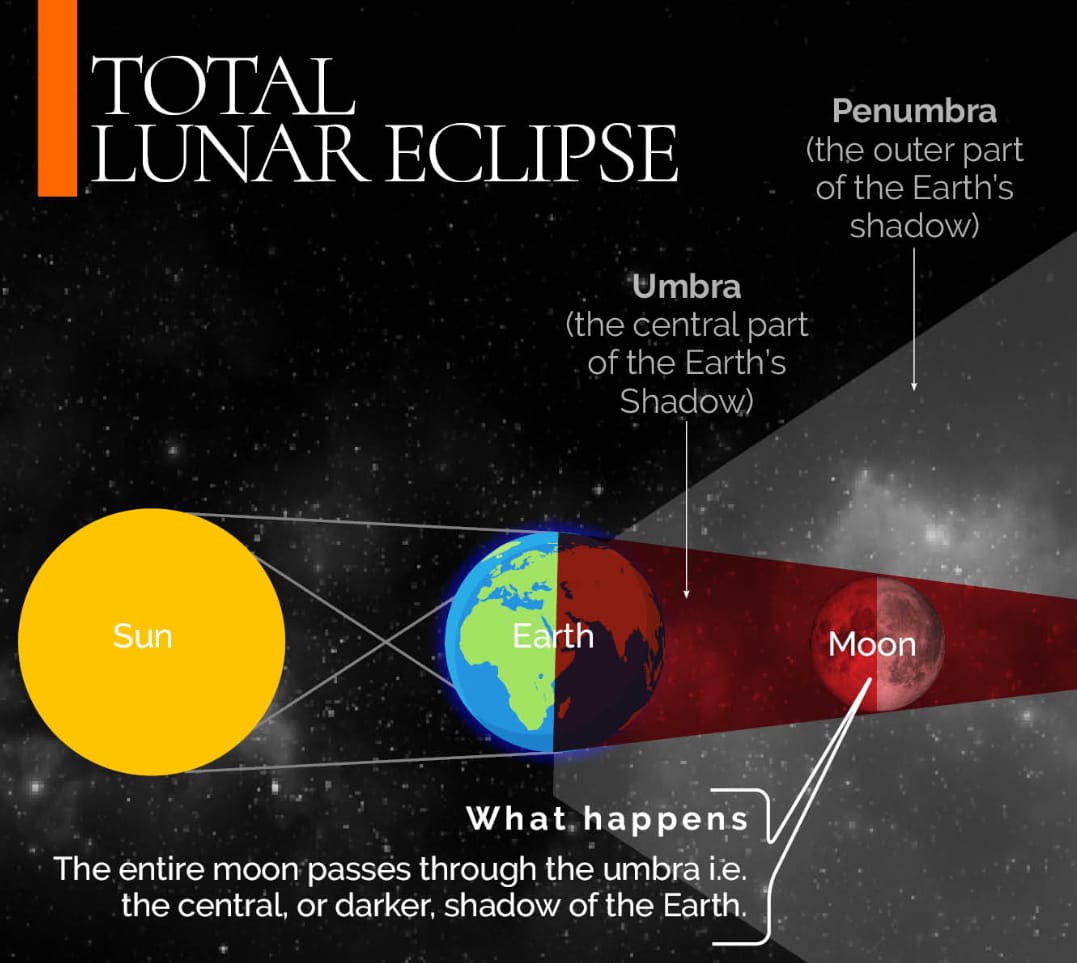Lunar Eclipse, Chandra Grahan September 18, 2024
An eclipse can occur when the Sun, Moon, and Earth are in a straight line. A lunar eclipse can only happen during a full moon when the Moon and Sun are on opposite sides of the Earth. The Moon moves into the Earth’s shadow at that time, resulting in a lunar eclipse.
The Earth revolves around the Sun. The Moon is a satellite, which revolves around the Earth. When the Earth comes between the Sun and the Moon, the sunlight does not reach the Moon due to the Earth. Due to this, the shadow of the Earth falls on the Moon. This astronomical event is called a lunar eclipse. According to the Hindu calendar, the full moon comes on the last date of Shukla Paksha of every month. This astronomical event occurs on the day of the full moon.
Astrologists believe an eclipse is a life-changing time to seek change and usher in evolution. During a lunar eclipse, your emotions and subconscious patterns will be revealed when the moon is covered in the Earth’s shadow.
The first lunar eclipse fell on Holi 25 March 2024. This lunar eclipse was not visible in India. Therefore, the Sutak period was also not valid. Now the second and last lunar eclipse will take place on 18 September 2024. However, for skywatchers in India, this celestial event will not be visible, as the Moon will remain below the horizon during the entire eclipse. Despite this, the eclipse can be viewed in several other parts of the world, depending on the local time and clear skies. According to the Hindu calendar, the second and last lunar eclipse of the year 2024 is going to take place on the full moon day of Shukla Paksha in September. Astronomical events like solar eclipse and lunar eclipse are considered very important in astrology. It is believed that it has a deep impact on the public mind.
The second lunar eclipse of the year will be visible in limited areas of Europe, Africa, North America, South America, the Pacific, Atlantic, Indian Ocean, Arctic, and Antarctica. This eclipse will also not be visible in India, but it can be seen in the western cities of the country including Mumbai. However, its chances are also very low because when the lunar eclipse starts, the moon will have set in the whole of India. Therefore, the lunar eclipse will not be visible in India.
The sutak period begins 9 hours before the eclipse begins. During this time, religious activities are prohibited. Pregnant women have to be very cautious during the period of the eclipse from the Sutak period. However, the second lunar eclipse of the year will not be visible in India. Therefore, the Sutak period will also not be valid.
According to Vedic astrology, the auspicious and inauspicious effects of lunar eclipse and solar eclipse also fall on 12 zodiac signs. According to astrological calculations, the second lunar eclipse of the year can give painful results to Aries, Gemini, Cancer, Virgo, Scorpio, Aquarius, and Pisces. At the same time, this lunar eclipse will bring happiness to the lives of people of Taurus, Leo, Sagittarius and Capricorn.
Courtesy: Articles on Indian Astrology.
Article written by and Editorial credit: State Bureau Chief Himanshu Nauriyal.
